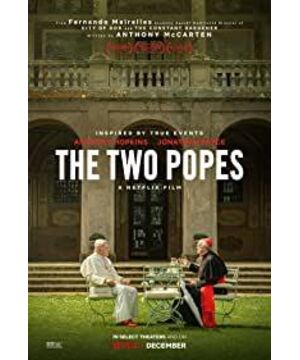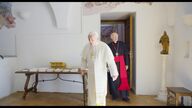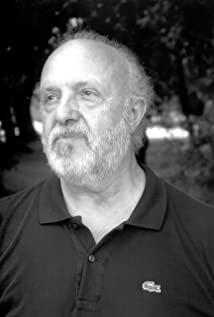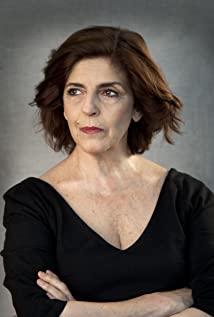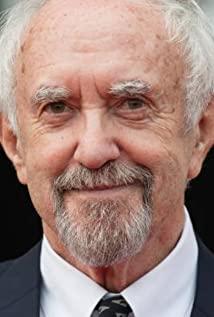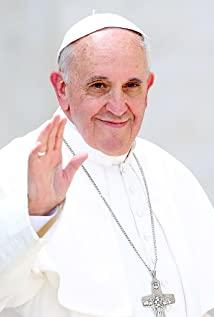At the beginning of the chapter, I must express my love for this movie: it is so wonderful, there is no urine point in the whole process, every conversation (debate) between Benedict XVI and Cardinal Bergoglio is every word and every word. There is so much to remember, read, and reflect on. . On February 11, 2013, Pope Benedict XVI announced his resignation decision at a meeting of cardinals. In the days that followed, he attended his final public events as Pope as originally scheduled, and after saying goodbye to the cardinals and officials of the Holy See, he left before 8 p.m. on the afternoon of February 28, when his resignation took effect. After leaving the Vatican, we headed to Palazzo Gandolfo, our temporary residence. At this point, Benedict XVI's nearly eight-year papal term has ended. This event has become the most dramatic power transfer event in Catholicism in more than 2,000 years, and this film is about this event. . This movie gave me the biggest impression... Let me make an analogy: Medieval religious painting VS Renaissance religious painting. In the past, the Pope was in my impression as a god-like existence, distant and sacred, just like those religions in the Middle Ages The subject painting is a distant image with only divinity, and the pope and cardinal (cardinal) in this film are flesh and blood people, just like the humanism reflected in the Renaissance religious painting, full of opposition. Self-affirmation (even with weaknesses and sins). As Benedict said repeatedly: we are mortals, not gods. . When Benedict XVI decided to abdicate and summoned the politically dissident Cardinal Bergoglio to Rome (hope that he would succeed the pope), Bergoglio asked him to retire. The first wonderful conversation took place in the gardens of the Pope's Summer Palace, and the content was fantastic. You will see a big debate between two top Catholic clergy with very different values, one conservative and one progressive, one who believes that the dogma will remain unchanged and that God will not "change", and the other believes that the dogma will evolve with the times, and so will God It will change... The two people start arguing before they can say a few words, and they can't talk together at all. One of my favorite quotes from Bergoglio: "Sin is a wound, not a stain, it needs healing, and forgiveness is useless." In addition, the debate on "Wall" is also quite exciting, you must pay attention to it, which echoes the "Bridge not wall" that follows. . The second conversation took place in the Sistine Chapel, overlooking Michelangelo's "Genesis", where Bergoglio recalled the "sins" he had committed in his youth and confessed to the Pope . And then, the Pope also regretted to Bergoglio the most terrible sin he had ever committed. At that moment, they were like two children who redeemed each other (their regrets are very important, let's see) . . And my favorite episode: Whenever a cardinal takes out his retirement letter, the Pope says, "I don't listen, I don't listen," like a child. And the pope and the bishop standing in the house behind the Sistine Chapel eating pizza and drinking Fanta, that joy, very close and lovely. . I won't go into details about more content. Don't miss it if you like it. You must listen to their dialogue carefully, maybe you will get a lot of inspiration from it. . PS: 1. There are real pictures of two popes at the end~ 2. Bergoglio is the first Latin American pope (born in Buenos Aires, Argentina), who is frugal, kind, and loving Tango and football are all covered in movies. . love love
View more about The Two Popes reviews


